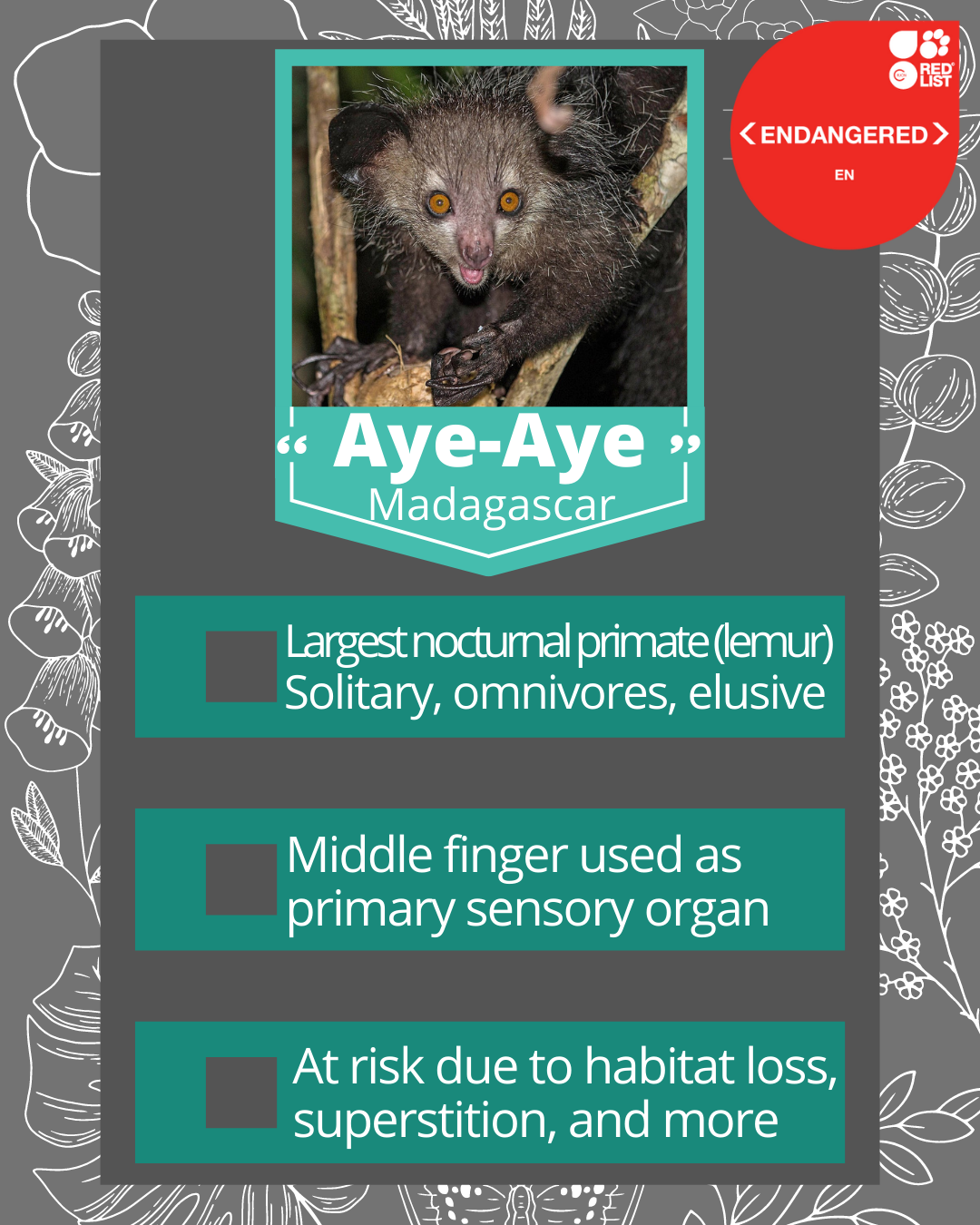
April 2022 Newsletter
Published April 1st at 10:00am PST
Title: "Currently.."
Artist: Valerie Jaimes
Location: Anchorage, Alaska
Medium: Acrylic on canvas
Size: 24"x36"
IG: @gallery_by_valerie FB: Valerie Jaimes Art
My River runs to thee—
Blue Sea! Wilt welcome me?
My River wait reply—
Oh Sea—look graciously—
I'll fetch thee Brooks
From spotted nooks—
Say—Sea—Take Me!

Table of Contents
April Astrological Events
Earth Day 2022: April 22
An Overview of Ecotourism
Earth’s Kettle: Geysers
4th Annual 2022 “ALL Planet Earth” Art Competition & Exhibition
Can we get an “Aye, Aye!” for the Aye-Aye?
Nature Crossword Puzzles
Energy Hour

FEBRUARY ASTRONOMICAL EVENTS
ASTRO BOY
April 1: New Moon
April 16: Full Moon (Sprouting Grass Moon, Growing Moon, Egg Moon, Fish Moon)
April 22, 23: Lyrids Meteor Shower
April 29: Mercury at Greatest Eastern Elongation
April 30: Partial Solar Eclipse; New Moon
PARTIAL SOLAR ECLIPSE
FROM SEASKY.ORG:
“A partial solar eclipse occurs when the Moon covers only a part of the Sun, sometimes resembling a bite taken out of a cookie. A partial solar eclipse can only be safely observed with a special solar filter or by looking at the Sun's reflection. This partial eclipse will be visible throughout most of the southeast Pacific Ocean and southern South America. It will be best seen from Argentina with 53% coverage.
(NASA Map and Eclipse Information)”
Click the button below to see a map of your night sky! Once you submit a date, time, and location, the website will show you the constellations visible to you. Check what to look for and where to look then grab a blanket and a cup of tea for an astrological scavenger hunt!
Sky in Sacramento, CA on February 16, 2022 at 10pm
Can you spot the Full Moon?!
This image was produced by Stelvision. Link provided here:
AN OVERVIEW OF ECOTOURISM
MR. GREEN
By Abrar Hasanat
With the impact of the COVID-19 pandemic fading and practically all travel restrictions being relaxed, travelers are once again on the road, exploring everything from historical landmarks to exotic natural wonders. As a result, tourism in almost all the countries is blooming once again. When we think about tourism, we imagine pristine beaches, breathtaking scenery, and the thrill of becoming lost in a different world. There are unique colors and aromas, delectable foods, and incredible people. We can immerse ourselves in the landscapes and habits of civilizations vastly different from our own through tourism.
However, while we travel, we must be cognizant of the areas we visit and the impact our activities have on them. And with people becoming more and more conscious about the environment, a relatively new concept has come around named Ecotourism.
According to Cambridge Dictionary, ecotourism is “holidays and travel that involve causing less damage to the environment than usual and that make people aware of the need to protect the environment”.₁ The goal of ecotourism is to combine the thrill of travel with a conscious effort to support and conserve those locations. It is about preserving local traditions while mitigating the harmful effects of the tourism sector. Ecotourism basically combines sustainable tourism and environmental conservation to offer a low-impact vacation experience.
One might think that ecotourism and sustainable tourism are the same thing. But as you could’ve guessed from the tone of the paragraph, they’re not. They have similarities, but there are also some major differences. Ecotourism focuses on visiting regions of natural beauty while also conserving nature and supporting the local economy. Sustainable tourism, on the other hand, is primarily concerned with environmental sustainability and making travel minimally destructive. As a result, sustainable tourism can encompass a broader range of different sorts of travel to a broader range of destinations, whereas ecotourism has a tighter focus on nature and conservation initiatives. In a nutshell, sustainable tourism includes travels to both nature-based and urban-based destinations, while ecotourism includes only nature-based destinations.₂
Now, coming back to ecotourism. Supporting such responsible travel not only helps to preserve the beauty of natural ecosystems but also helps to safeguard the people who live there. The most significant advantages are the preservation of these places and the growth of local communities on a long-term basis. Historically, the travel industry has posed a danger to the cultural and environmental integrity of communities. Travelers who are insensitive to local cultures and ways of life can occasionally ruin or destroy a community's natural and cultural assets. Ecotourism allows places that rely significantly on tourism for economic support and growth to continue benefiting from it while also protecting local populations from some of the drawbacks of traditional tourism practices.₃
Even though there’s no official classification of ecotourism, it is widely divided into 4 main types:₂
Mutually Beneficial Community Development Trips: Volunteering initiatives aimed at mitigating the harmful effects of tourist activities and industrialization. Ecotourists can learn to build houses, plant trees, and learn local trades. They can help raise cultural awareness by volunteering at schools, museums, or research facilities.
Eco Lodging and Low Impact Accommodation: Choosing lodgings that are created with sustainability in mind. These can range from hostels and hotels constructed with eco-friendly materials or in natural settings to "Eco-resorts" established in isolated locations and offering ecotourism activities such as bird viewing, hiking, or kayaking.
Eco Trekking and Activity-Based Ecotourism: Eco trekking and other forms of ecotourism that combine physical activities with a larger purpose can be thought of as active educational travel. Hiking, climbing, nature walks, water-based activities and other activities are undertaken by visitors while causing as little harm to the local environment as possible. The activity will be linked with educational opportunities that will teach visitors about the region and its culture. Companies that offer eco treks may contribute a portion of their income to local charities.
Agritourism and a Focus on Rural Communities: Finally, agritourism is a type of tourism focused on agricultural operations and rural areas. It will typically consist of travelers visiting rural areas and actively participating in local life and culture, giving them a taste of what life is like in other parts of the world.
So how does ecotourism benefit economies? How does it support conservation and the locals in the communities?₄
Perhaps the most significant benefit of ecotourism is that it motivates both tourists and tourism businesses to become more environmentally conscious and dedicated to adopting the kinds of sustainable and beneficial behaviors that intend to limit the damage caused by tourism operations.
Again, ecotourism generates new jobs and strengthens local economies by giving back to the community. More tourists equals more revenue for local businesses such as stores and restaurants. Volunteers who help build houses or rehabilitate communities help the local economy by retaining resources and revenue in the area. This has an impact on the local people's well-being.
The educational part of ecotourism can also lead to visitors embracing healthy behaviors in their daily lives, such as making a more conscious effort to help with conservation and preservation. Meanwhile, the arrival of travelers in places that have not previously been tourist hotspots can assist residents in learning new things.
The money generated by ecotourism may be used to strengthen a region's overall infrastructure. This is especially crucial for underdeveloped regions of our world, where governments frequently lack adequate finances to fund critical infrastructure improvements.
The preservation of our ecosystems is also not free, and the extra money obtained through ecotourism can be utilized to maintain natural habitats or for reforestation projects, improving the overall quality of our natural habitats.
Ecotourism is far more beneficial than conventional mass tourism, and while there are several environmental and economic benefits, it can still pose a threat to the ecotourism location. While it aims to reduce the negative impact of travel, it can still affect the local area's natural habitat, economy, and culture. Moreover, greenwashing tourism and promoting it as a sustainable travel experience occurs. It is hoped that everyone who pursues ecotourism does so for the right reasons, but there are always those who want to make a profit rather than have a constructive impact on the people and economic growth of a region. Some of the challenges to eco-tourism are:₄
Environmental Challenges: Conservation and sustainability are important goals of ecotourism, yet there is always a risk to the ecosystem when tourism expands. The use of a particular spot will increase as its popularity grows. This can result in excessive taxation of resources and disruption of nature. Sure, eco-friendly resorts are a terrific choice, but they also risk affecting wildlife, which can have a severe impact on their natural habitats. These locations are frequently difficult to access, which increases the carbon footprint of getting in and out of them.
Economic Challenges: Larger international firms are becoming more interested in ecotourism. This could result in an influx of outside developers in emerging hotspot eco-destinations. When these developers create hotels and shops that compete with local businesses, the local economy suffers. Again when the cost of food and water rises as the number of tourists increases, the well-being of the locals suffers. And, while the purpose of ecotourism is to return revenue to the areas, corrupt firms or governments might intervene and divert funds away from the communities that should be compensated.
Local Cultural Challenges: Towns must expand to accommodate the increased population brought on by tourism, which may result in local residents losing some or all of their agricultural property. Locals may give up their original jobs in order to work in the service and tourism business in order to keep up with the accommodation of tourists. These are frequently low-wage employment in hotels and restaurants. This loss of traditional income may have an impact on their cultural links to their homeland and cultural identity. Indigenous peoples in these locations are likewise in danger. When components of their culture, such as ceremonies, are commercialized for tourist attraction, the native traditions and cultures may lose authenticity and meaning through cultural appropriation and commercialization.
Should these difficulties or drawbacks be enough to put an end to ecotourism? Certainly not! We'll need to discover ways to mitigate the bad effects of ecotourism as time goes on, but it's still considerably superior to traditional tourism and offers a much broader range of benefits. When faced with obstacles about a good thing, we must discover answers rather than abandon them totally.
Most importantly, if you enjoy traveling in any way, you should be enthusiastic about ecotourism. As simple as that. It ensures the well-being of the locations we travel to and the people who live there. It protects our destinations' cultural history and natural environment. Ecotourism benefits local people by respecting their land, creating new economic possibilities, and raising funds for conservation and environmental preservation. The places we want to see will vanish if we continue to subsidize mass tourism. Choosing ecotourism is a simple approach to slow climate change while also supporting the well-being of local individuals and communities. It's a simple way to give back to the planet that gives us so much.
Works Cited:
“Ecotourism.” Cambridge Dictionary. Cambridge University Press. Accessed March 30, 2022. https://dictionary.cambridge.org/dictionary/english/ecotourism.
“Ecotourism: What It Is, Advantages & Disadvantages, Examples & More.” Revfine.com, February 18, 2022. https://www.revfine.com/ecotourism/.
Gallagher, Katherine. “What Is Ecotourism? Definition, Examples, and Pros and Cons.” Treehugger. Treehugger, April 30, 2021. https://www.treehugger.com/what-is-ecotourism-definition-examples-5181259.
“30 Top Pros & Cons of Ecotourism.” Environmental Conscience, August 4, 2021. https://environmental-conscience.com/ecotourism-pros-cons/.
EARTH’S KETTLE: GEYSERS
GEO BLAST
What is a more appropriate topic for Geo Blast than geysers?
What is a geyser, you ask? Or the science behind it? We could type out a nice scientific definition for you, or you could watch these fun videos instead!
Learn what we know, how we’re trying to learn more, and then watch some of the biggest geysers in action!
Let’s learn the fundamentals of geysers!
While this video is made for our younger Earthians, it’s a great explanation for all ages!
Would you want to study geysers?
See what researchers at UC Berkeley do to answer the unknowns of these natural fountains.
10 BIGGEST Water Geysers on Earth

CAN WE GET AN “AYE, AYE!” FOR THE AYE-AYE?
CRITTER CORNER
“Aye-Aye.” Duke Lemur Center, June 4, 2021. https://lemur.duke.edu/discover/meet-the-lemurs/aye-aye/.
“Aye-Aye.” Animals: Photo Ark. National Geographic. Accessed March 1, 2022. https://www.nationalgeographic.com/animals/mammals/facts/aye-aye.

NATURE CROSSWORD PUZZLES
NEURO NASH
Work your mind and test your knowledge on various nature trivia!
The site provides multiple crosswords in an interactive format. Click on the cell you want to fill in and type out your answer! The site will check your work as you go!
I did this puzzle here and had a lot of fun (and I’m usually not very good at crosswords)!
For more puzzles click the button below!
ENERGY GIRL
ENERGY HOUR
Tuesdays from 7pm-8pm
Turn off all energy-using lights, appliances, and heating/cooling systems!
If you're wondering what to do without TV or a laptop charger here's some ideas!
-Color, Arts and Crafts
-Puzzles: jigsaw, crosswords
-Board Games
-Clean
-Talk to your housemates!
Editor’s Note: Earthians Care is a dual education platform. While our writers are here to spread information to readers, they are themselves learning about these topics. Our writers are not professionals in the field, nor are they professional writers and researchers. While we all do our best to relay accurate information, we encourage you to explore topics on your own as well. The sources given in the newsletter are a great place to start! If you are aware of any inaccurate information presented in our newsletter, please notify us at earthianscare@gmail.com Subject: Correction.






